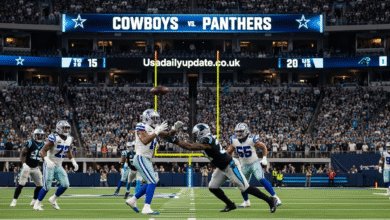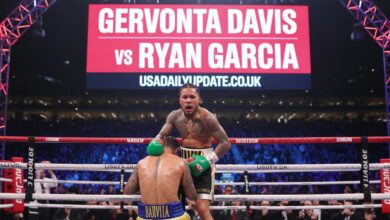Sports Connections: Amazing Ways They Transform Lives
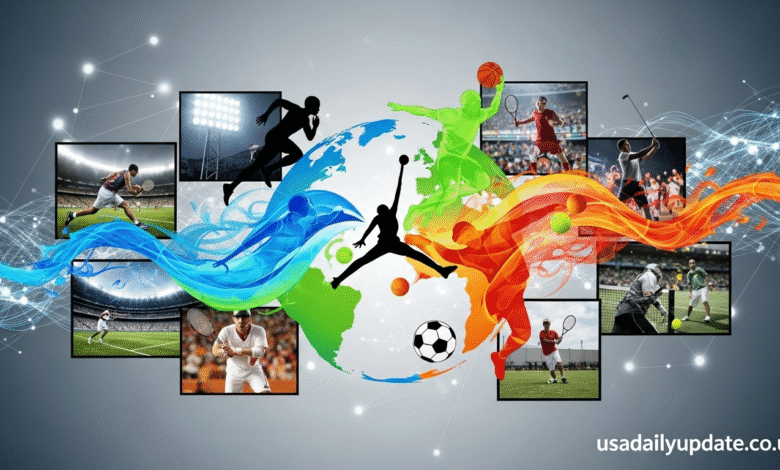
Introduction
You’ve probably experienced that instant bond when you meet someone who loves the same team you do. There’s something magical about sports connections that transcends age, background, and geography. Whether you’re high-fiving strangers at a game or networking at a charity golf tournament, athletics creates bridges between people in ways few other activities can.
Sports connections go far beyond simple fandom or casual games. They shape communities, launch careers, strengthen families, and build networks that last lifetimes. From the youth soccer field to corporate boardrooms, athletic relationships influence our personal and professional lives in profound ways.
This article explores the multifaceted world of sports connections and how they impact everything from mental health to business success. You’ll discover practical strategies for building meaningful relationships through athletics, understand the psychology behind sports bonding, and learn how to leverage these connections for personal growth. Whether you’re an athlete, fan, parent, or professional, understanding sports connections can enhance your life in unexpected ways.
Understanding the Power of Sports Connections
The Psychology Behind Athletic Bonding
Sports create unique emotional experiences that forge powerful bonds between people. When you share the highs and lows of competition or fandom, your brain releases oxytocin and dopamine. These neurochemicals strengthen social bonds and create lasting memories.
The shared identity aspect of sports connections cannot be overstated. Wearing your team’s colors or playing on the same squad creates an immediate sense of belonging. This tribal aspect of athletics taps into deep human needs for community and purpose.
Research shows that sports fans experience physiological responses similar to athletes during games. Your heart rate increases, stress hormones fluctuate, and you feel genuine emotional investment. These intense shared experiences create connections faster than most social situations.
The concept of “basking in reflected glory” explains why sports connections feel so rewarding. When your team wins, you experience a boost in self-esteem and social identity. Sharing these victories with others multiplies the positive feelings and strengthens relationships.
Different Types of Sports Connections
Athletic relationships manifest in numerous ways throughout our lives. Understanding these different categories helps you recognize and cultivate meaningful sports connections intentionally.
Player to Player Connections develop through training, competition, and shared goals. Teammates often form bonds that last decades beyond their playing days. The trust required in sports creates deep friendship foundations.
Fan Communities represent massive networks of people united by team loyalty. These connections span social classes, professions, and geographical boundaries. Online and offline fan communities provide social support and entertainment year-round.
Professional Networks built through sports open doors in business and career advancement. Golf outings, company softball leagues, and sports-related charity events facilitate relationship building in professional contexts.
Family Bonds strengthened through sports create lasting traditions and memories. Parents coaching youth teams, families attending games together, and multi-generational fan loyalty all exemplify how athletics connects relatives.
Mentorship Relationships between coaches and athletes shape character and provide guidance beyond sports. These connections often influence life decisions and provide support during difficult transitions.
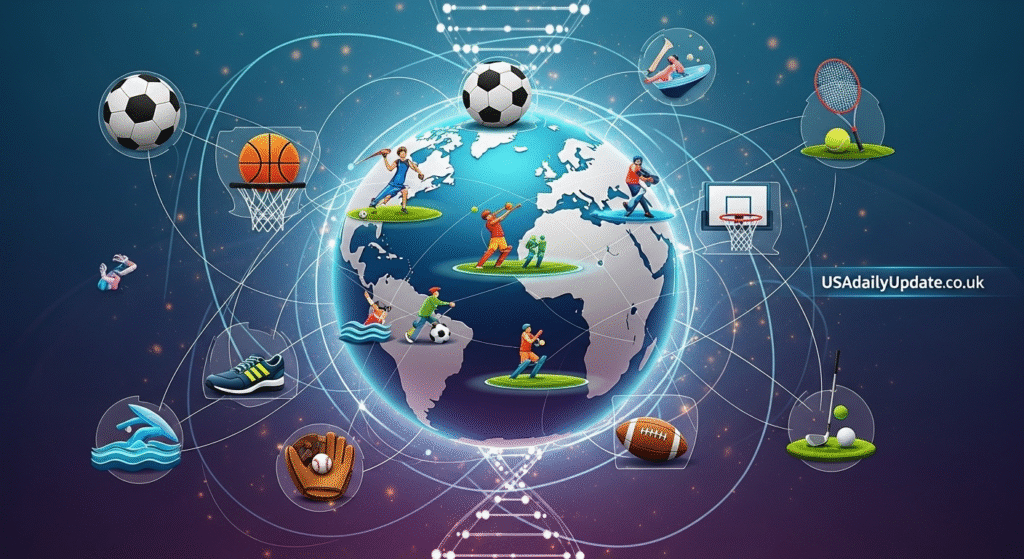
Building Meaningful Sports Connections
Joining Teams and Leagues
Participating in organized sports as an adult offers tremendous opportunities for connection. Recreational leagues exist for virtually every sport and skill level in most communities. You don’t need elite abilities to enjoy the social benefits of team sports.
Look for leagues that match your commitment level and goals. Some focus on serious competition while others emphasize fun and socializing. Understanding the league culture before joining ensures you find the right fit for building connections.
Consistency matters when building sports connections through leagues. Showing up regularly, supporting teammates, and participating in social events accelerates relationship development. The repetition of weekly games creates natural opportunities for friendships to deepen.
Consider trying new sports to expand your social circle. Joining a sport where you’re a beginner puts you in a humble position that often facilitates authentic connections. Learning together creates bonds through shared vulnerability and growth.
Engaging with Fan Communities
Modern technology has revolutionized how fans connect around sports. Online forums, social media groups, and team apps create 24/7 communities that extend far beyond game day. These digital spaces allow you to find people who share your specific interests and passion levels.
Attend games and fan events to transform online connections into real relationships. Tailgates, watch parties, and supporter group gatherings provide structured social opportunities. The shared rituals and traditions of fandom create belonging and identity.
Season tickets or regular attendance at events naturally builds connections with those sitting nearby. These “seat neighbors” often become genuine friends over seasons of shared experiences. The consistent proximity and common interest provide perfect conditions for relationship growth.
Contributing to fan communities through content creation, organization, or volunteering elevates your connections. When you add value to the community, people remember you and reciprocate with friendship and support.
Volunteering in Youth Sports
Getting involved in youth athletics offers deeply rewarding sports connections while serving your community. Coaching, refereeing, or organizing tournaments connects you with other adults who care about kids and sports.
The relationships you build with young athletes can be profoundly meaningful. Mentoring kids through sports challenges teaches life lessons that impact their development. Many former coaches maintain connections with players for decades.
Parent communities formed around youth sports provide valuable social networks. You’ll spend significant time with other parents at practices and games. These relationships often extend beyond sports into broader friendships.
Youth sports volunteering demonstrates your values and character to your community. The visibility and service aspect often leads to unexpected professional opportunities and social invitations.
Sports Connections in Professional Settings
Networking Through Athletics
Business networking through sports has become increasingly sophisticated and intentional. Golf remains the classic athletic networking activity, but running groups, cycling clubs, and fitness classes now serve similar purposes.
Sports provide natural conversation topics that bypass awkward small talk. Discussing last night’s game or sharing training tips creates easy rapport. The informal setting of athletic activities often feels more authentic than traditional networking events.
Corporate sports sponsorships and suites create exclusive networking opportunities. Companies invest in these experiences specifically because the relaxed atmosphere facilitates relationship building. The entertainment value makes the networking feel less transactional.
Participating in charity sports events combines networking with social good. Fundraising runs, golf tournaments, and celebrity sporting events attract professionals across industries. The shared purpose adds meaning to the connections you make.
Athletic Background as Career Advantage
Former athletes often cite sports connections as crucial to their career success. The network developed through athletics extends into professional life, opening doors that might otherwise remain closed.
Employers value athletes for teamwork, discipline, and competitive drive. When decision makers share your athletic background, that common ground creates immediate connection. Many executives actively recruit former athletes for these reasons.
Alumni networks organized around sports teams provide powerful professional resources. Former teammates understand shared experiences and often help each other career-wise. These bonds, forged through athletic adversity, translate into professional loyalty.
Sports metaphors dominate business language for good reason. When colleagues share athletic experiences, communication becomes more efficient and understood. The shorthand of sports culture facilitates workplace connection.
Company Sports Programs
Forward-thinking organizations create internal sports programs recognizing their connection-building value. Company leagues, fitness challenges, and recreational activities improve morale while facilitating cross-departmental relationships.
Employees who play together develop trust that enhances workplace collaboration. The informal nature of sports interactions breaks down hierarchical barriers. Junior employees connect with senior leaders more easily on the field than in the office.
Wellness programs with team sports components show measurable benefits in employee engagement. The social aspect makes fitness more sustainable and enjoyable. Healthy employees with strong workplace connections tend to stay with companies longer.
Supporting employee participation in external sports through sponsorships or flexible scheduling demonstrates company values. This support builds loyalty and attracts talent who prioritize work-life balance.
Sports Connections and Mental Health
Community and Belonging
Loneliness has reached epidemic levels in modern society, but sports connections provide powerful antidotes. The sense of belonging from team or fan community membership significantly improves mental wellbeing.
Regular sports participation creates structure and social obligations that combat isolation. Knowing teammates count on you provides motivation on difficult days. The accountability aspect of sports connections promotes consistency.
For people struggling with depression or anxiety, sports connections offer non-clinical support systems. The physical activity combined with social interaction addresses multiple mental health factors simultaneously. Many find discussing challenges easier in the casual context of sports.
Immigrant and relocated individuals often use sports connections to build community in new places. The universal language of athletics transcends cultural and linguistic barriers. Joining a team or fan group accelerates social integration.
Shared Triumphs and Struggles
Experiencing victories together creates powerful positive memories that strengthen relationships. The joy of winning as a team or celebrating your favorite team’s championship becomes part of your shared identity with others.
Equally important are the connections forged through losses and disappointments. Supporting each other through defeat builds character and deepens bonds. These challenging moments often reveal true friendship quality.
Long-suffering fan bases develop particularly strong connections through shared misery. The loyalty required to stick with losing teams creates a special kinship. When success finally arrives, those connections make victory sweeter.
Overcoming physical challenges in sports creates respect and admiration among participants. Watching teammates push through pain or limitation inspires and connects. The vulnerability of athletic struggle builds authentic relationships.
Purpose and Identity
Sports connections contribute to your sense of identity and life purpose. Being part of something larger than yourself provides meaning that enhances mental health. Team membership or fan identity becomes part of how you define yourself.
The goals and milestones in sports give life structure and purpose. Training for races, improving skills, or following your team through a season provides narrative arc to your year. These shared journeys connect you with others on similar paths.
Sports connections often fill the void left by declining participation in traditional community organizations. Athletic communities provide the social infrastructure that religious and civic groups once offered. This role makes sports connections increasingly important.
Multi-generational sports connections pass down traditions and values. Teaching your children about your team or sport creates family legacy. These connections transcend individual lifetimes and create continuity.
Technology and Modern Sports Connections
Social Media Communities
Digital platforms have exploded the scale and scope of sports connections. You can now connect with fans worldwide, access athletes directly, and participate in real-time conversations during games. Technology has democratized sports community participation.
Twitter, Reddit, and specialized forums host thriving sports communities. These spaces allow deep discussion, analysis, and shared experience regardless of physical location. The 24/7 nature of online sports talk maintains connections between games.
Fantasy sports have created entirely new categories of sports connections. League mates who’ve never met in person develop genuine friendships through competition and trash talk. The season-long engagement deepens these relationships.
Instagram and TikTok have changed how athletes connect with fans. Direct access to player personalities makes fans feel more connected than ever before. The parasocial relationships, while different from traditional friendships, still provide social benefits.
Apps and Platforms for Athletes
Numerous apps now exist specifically to help athletes find playing partners and teams. Platforms like OpenSports, Meetup, and sport-specific apps facilitate connections that might never happen organically. Technology has reduced friction in building sports connections.
Strava and similar fitness apps create virtual communities around running, cycling, and other individual sports. The social features, challenges, and kudos system provide connection despite the solitary nature of these activities. You feel part of a community even when training alone.
Video games and esports have created legitimate sports connections for millions. FIFA, Madden, and NBA 2K communities bond over virtual athletics just as traditional fans do. These connections are particularly valuable for people with mobility limitations.
Virtual racing and fitness classes exploded during recent years. Peloton and Zwift communities demonstrate that technology can facilitate genuine connection even in remote settings. The hybrid model of digital and physical sports continues evolving.
Challenges of Digital Connections
While technology expands sports connections, it also creates challenges. Online anonymity sometimes brings out toxic behavior in sports communities. Balancing the benefits of digital connection with its drawbacks requires conscious effort.
Screen time devoted to sports can become excessive, replacing rather than supplementing real-world relationships. Finding healthy balance between online and offline sports connections matters for wellbeing.
The curated nature of social media can create unrealistic expectations around sports participation. Comparing yourself to highlight reels and elite athletes can damage self-esteem. Authentic sports connections acknowledge imperfection and struggle.
Digital sports connections sometimes lack the depth of in-person relationships. While valuable, they work best as supplements to rather than replacements for face-to-face interaction. Intentionally converting online connections to real meetings when possible strengthens bonds.
Maximizing Your Sports Connections
Being Intentional About Relationship Building
Passive participation in sports misses much of the connection potential. Actively introducing yourself, learning names, and showing genuine interest accelerates relationship development. Small efforts to connect beyond just playing make significant differences.
Follow up with new sports connections outside the athletic context. Grabbing coffee, connecting on social media, or attending non-sports events together deepens relationships. The strongest sports connections extend beyond the field or arena.
Host or organize sports-related social events to strengthen your network. Watch parties, group outings to games, or post-game gatherings position you as a community builder. People remember and appreciate those who facilitate connection.
Share your sports enthusiasm authentically without overwhelming others. Genuine passion attracts like-minded people, but respecting boundaries matters. Not everyone wants to discuss sports constantly, even fellow fans.
Maintaining Long-Distance Sports Connections
Former teammates and sports friends often scatter geographically. Technology makes maintaining these connections easier than ever. Regular video calls during games, sharing highlights, and planning annual reunions keep bonds strong.
Fantasy leagues provide excellent structures for maintaining friend groups. The regular interaction required keeps everyone connected throughout the season. Trash talk and competition maintain the fun dynamic of your relationship.
Traveling to visit distant sports connections combines friendship with adventure. Planning trips around major sporting events or reunion games creates memorable experiences. These efforts demonstrate the value you place on the relationship.
Supporting friends’ athletic endeavors from afar maintains connection. Watching their games via streaming, congratulating achievements, and showing interest keeps you present in their lives. Sports provide easy touchpoints for staying connected.
Creating Inclusive Sports Connections
The best sports connections welcome people regardless of skill level, background, or demographics. Creating inclusive environments expands your network and enriches everyone’s experience. Consciously building diverse sports connections broadens your perspective.
Adapting activities to accommodate different abilities allows more people to participate. Modified rules, multiple skill divisions, and supportive attitudes make sports accessible. Inclusive sports connections benefit everyone involved.
Welcoming newcomers to your team or fan community strengthens the entire group. Taking time to explain traditions, introduce people, and make others comfortable creates lasting positive impressions. The effort you put into including others comes back multiplied.
Challenging exclusionary behavior in sports spaces makes them better for everyone. Speaking up against discrimination, sexism, or toxic gatekeeping protects vulnerable community members. Healthy sports connections require safe, respectful environments.
The Future of Sports Connections
Emerging Trends
Esports continues blurring lines between traditional and digital sports connections. Professional gaming creates the same passionate fan communities as physical sports. The connections formed around esports are just as valid and meaningful.
Women’s sports are experiencing explosive growth, creating new connection opportunities. Increased visibility and investment in female athletics expands the sports connection landscape. Supporting this growth benefits everyone.
Alternative and niche sports gain traction as people seek unique community experiences. Disc golf, pickleball, and ultimate frisbee have built substantial followings. These emerging sports often foster particularly welcoming communities.
Mental health awareness in sports is creating more authentic, supportive connections. Athletes and fans discussing struggles openly reduces stigma. Vulnerable, honest sports connections provide deeper support than surface-level relationships.
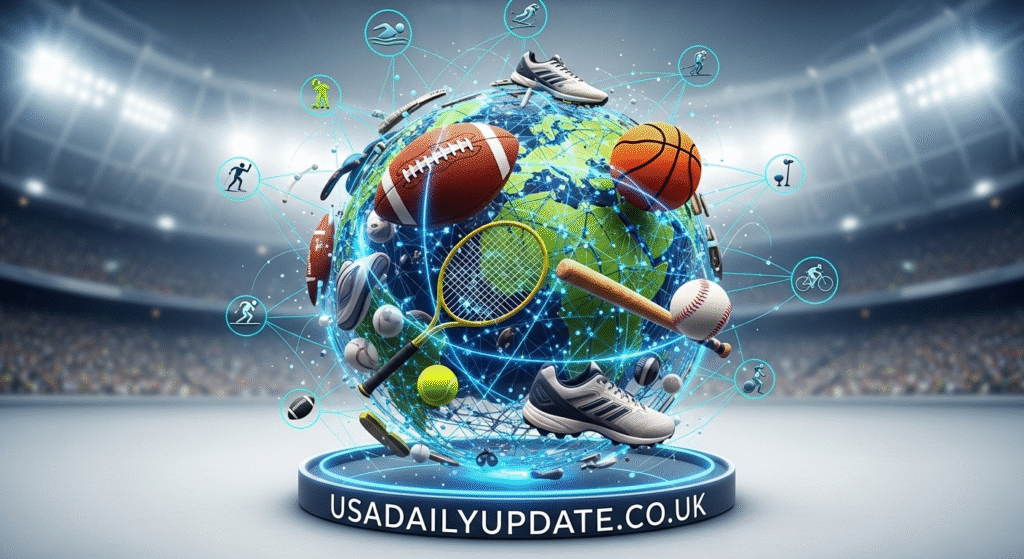
Preserving Authentic Connection
As sports become increasingly commercialized and mediated by technology, preserving authentic connection matters more than ever. Being present during games rather than constantly recording, having real conversations instead of just posting, and prioritizing relationships over content maintains meaning.
Youth sports face challenges with over-emphasis on winning and specialization. Protecting the fun and connection aspects of kids’ athletics ensures future generations experience sports’ social benefits. Adult attitudes shape whether youth sports build or damage connections.
Local sports and amateur athletics deserve support alongside professional spectacles. Community leagues, high school sports, and recreational activities often provide richer connection opportunities than passive consumption of elite athletics. Investing time and energy locally strengthens your immediate community.
Balancing competition with camaraderie keeps sports connections healthy. While rivalry creates excitement, remembering that relationships matter more than outcomes prevents toxicity. The best sports connections survive wins, losses, and team changes.
Conclusion
Sports connections enrich our lives in countless ways, from casual friendships to career-defining relationships. Whether you’re playing, watching, or organizing, athletics provides unique opportunities to build meaningful bonds with others. The shared emotions, common goals, and regular interaction inherent in sports create connection conditions that few other activities match.
The key to maximizing sports connections lies in intentionality, inclusivity, and authenticity. Show up consistently, welcome others genuinely, and invest in relationships beyond just the athletic activity. Technology expands your connection possibilities, but real-world interaction remains irreplaceable for deep bonding.
As our world becomes increasingly fragmented and isolated, sports connections offer vital community and belonging. They bridge divides, create shared identity, and provide support systems that enhance mental and physical wellbeing. The investment you make in building and maintaining sports connections pays dividends throughout your life.
What sports connections have shaped your life most significantly? Whether you’re looking to expand your network, find community, or simply enjoy athletics more fully, remember that the relationships you build matter just as much as the games themselves. Get out there, participate, and open yourself to the transformative power of sports connections.
Frequently Asked Questions
How do sports connections benefit mental health?
Sports connections combat loneliness by providing community and belonging. Regular participation creates structure, accountability, and social support that significantly improve mental wellbeing. The combination of physical activity and social interaction addresses multiple mental health factors simultaneously, while shared experiences create meaningful relationships that provide support during difficult times.
Can introverts build sports connections effectively?
Absolutely. Sports provide structured social situations that many introverts find easier than unstructured socializing. The activity itself gives you something to focus on besides constant conversation. Individual sports with community aspects, like running clubs or cycling groups, offer connection without overwhelming social demands. Start small and progress at your comfort level.
How can I use sports connections for career networking?
Join professional sports leagues, attend industry sporting events, or participate in charity tournaments where professionals gather. Golf, running groups, and corporate fitness programs offer natural networking opportunities. Share your sports interests on LinkedIn and connect with colleagues around athletic activities. The informal nature of sports settings facilitates authentic relationship building.
What sports are best for building connections as an adult?
Team sports like softball, volleyball, basketball, and soccer offer built-in connection opportunities through regular practices and games. Golf and tennis facilitate smaller group bonding. Running clubs and cycling groups combine individual sports with community aspects. Choose sports you genuinely enjoy, as authentic interest sustains participation and connection.
How do I maintain sports connections when I move to a new city?
Join local recreational leagues immediately to establish new connections. Attend games for local professional or college teams and engage with fan communities. Use apps to find pickup games or training partners. Volunteer with youth sports organizations. Wear your favorite team’s gear to identify fellow fans. Most sports communities welcome newcomers enthusiastically.
Are online sports connections as valuable as in-person ones?
Online sports connections provide real value but work best supplementing rather than replacing face-to-face relationships. Digital communities offer 24/7 engagement, global reach, and connections impossible otherwise. However, in-person interaction creates deeper bonds through shared physical presence and experience. Ideally, blend both types for maximum benefit.
How can families strengthen bonds through sports connections?
Attend games together regularly to create shared traditions and memories. Play sports as a family for quality time and healthy activity. Support children’s athletic pursuits while maintaining perspective. Share your own sports interests and history with kids. Multi-generational fandom creates legacy connections. The key is prioritizing fun and togetherness over competitive outcomes.
What if I lack athletic ability but want sports connections?
Sports connections don’t require elite ability. Recreational leagues welcome all skill levels, with many focusing primarily on fun. Fan communities require no athletic ability whatsoever. Volunteering as a coach, referee, or organizer builds connections without playing. Sports journalism, photography, or content creation offers another participation avenue. Enthusiasm matters more than talent.
How do sports connections differ from other friendships?
Sports connections often form faster due to intense shared experiences and regular interaction. The physical and emotional investment creates unique bonding. Shared identity around teams or activities provides strong foundations. However, the best sports connections evolve beyond just athletics into well-rounded friendships that address multiple life dimensions.
Can sports connections help with professional development beyond networking?
Yes. Sports teach teamwork, leadership, resilience, and goal-setting that directly transfer to professional contexts. Coaches and teammates often become mentors who guide career decisions. The discipline and work ethic from athletics enhance professional performance. Character developed through sports earns respect in workplace settings. Athletic communities often provide emotional support during career transitions or challenges.
Also Read Usadailyupdate.co.uk
